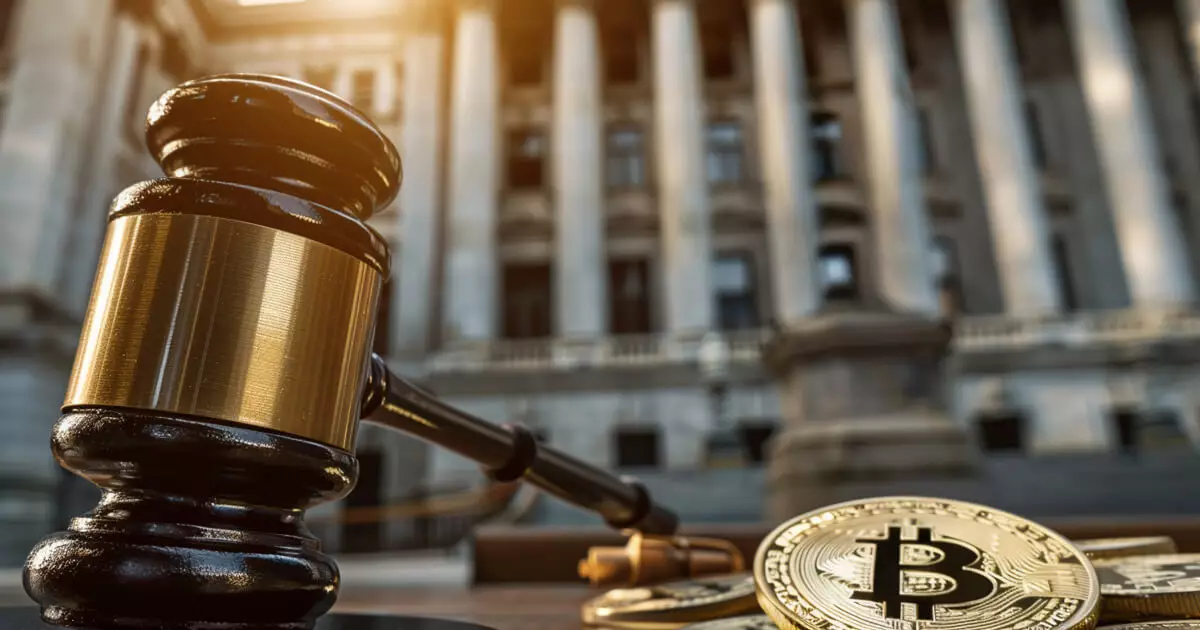The discourse surrounding the regulation and self-custody of Bitcoin has gained considerable traction, particularly with initiatives like the Satoshi Action Fund working diligently to secure legal protections at the state level. This article dissects that initiative, focusing on the parallels drawn with the cannabis industry and the historical movements for civil rights, while also addressing the skepticism posed by legal experts about the real impact and viability of such a strategy.
The Push for State-Level Protections
At the heart of the Satoshi Action Fund’s advocacy is a clear goal: to establish “safe haven” states for Bitcoin custodians, providing them with legal assurances amid a calendar of vague federal regulations. Dennis Porter, the CEO and co-founder of the fund, posits that in the absence of stringent federal laws, state laws may take precedence. This perspective draws upon the experiences of the cannabis movement, which has flourished in numerous states despite the overarching federal prohibition. The crux of Porter’s argument hinges on the belief that preempting federal action through state legislation can allow Bitcoin to thrive locally while waiting for broader recognition or implementation at the national level.
By positioning Bitcoin regulations similarly to how cannabis laws were championed state-by-state, the Satoshi Action Fund seeks to set a precedent where legal and operational frameworks for Bitcoin self-custody could be formulated irrespective of the federal stance. Porter’s emphasis on proactivity echoes sentiments from historical civil rights movements, suggesting that grassroots efforts are often necessary precursors to federal change. This strategic approach, while ambitious, raises critical questions about both its feasibility and potential ramifications.
Despite broad aspirations, legal scholars like Joe Carlasare caution that the supremacy of federal law presents substantial barriers. Carlasare argues that no matter how many states endorse Bitcoin protections, these state laws could ultimately fall short if met with federal preemption. The cannabis industry’s experience suggests that federal inaction can create a fertile ground for state innovation; yet, critics contend this is not a perfect analogy. Federal positions on cannabis, particularly concerning juvenile offenses or trafficking, differ significantly from the nuanced self-custody practices surrounding Bitcoin, complicating direct comparisons.
Carlasare’s skepticism is echoed by the scrutiny of recent legislative actions like Pennsylvania’s House Bill 2481, which boasts bipartisan support for digital asset rights. While it marks a historic step for state-level crypto protection, the overarching authority of the federal government looms large. For Pennsylvania to effectively safeguard Bitcoin self-custody rights, federal interpretation of state laws will hinge on complex legal confrontations should they arise.
The Role of Public Sentiment and Market Forces
Nevertheless, a compelling case exists for proactive state-level legislation; it reflects market sentiment and the growing integration of Bitcoin into financial systems. Pennsylvania, with more than a million crypto owners, stands as a critical battleground where local lawmakers are increasingly sensitized to the needs and rights of their constituents. Organizations like the Satoshi Action Fund aim to harness this palpable energy, hoping that a wave of successful legislative actions might catalyze a movement that draws more states into the fold.
Public perception and advocacy remain crucial in this equation. For Bitcoin proponents, the stakes are high. They prioritize creating an environment conducive to the adoption of cryptocurrency, perhaps viewing it as an alternative financial lifeline in a sometimes volatile landscape. As public demand for clarity increases, so do the chances for elected officials to act responsive to their constituents’ interests.
As discussions around the intersection of state and federal law continue to evolve, the efforts underway in Pennsylvania and potentially other states may provide a blueprint for future Bitcoin regulation across the United States. The resilience and adaptability of grassroots movements such as self-custody initiatives are vital as they tread uncharted territories of digital asset regulation.
While the Satoshi Action Fund’s ambitious project aims for immediate local protections reminiscent of the cannabis movement, the actualization of these protections will require not only legal finesse but also robust public support and ongoing dialogue between state and federal entities. The outcome of these efforts could ultimately dictate how Bitcoin is perceived and regulated—locally and nationally—in the coming years. The road ahead is fraught with complexities, but it is paved with potential that stakeholders must be willing to navigate.

